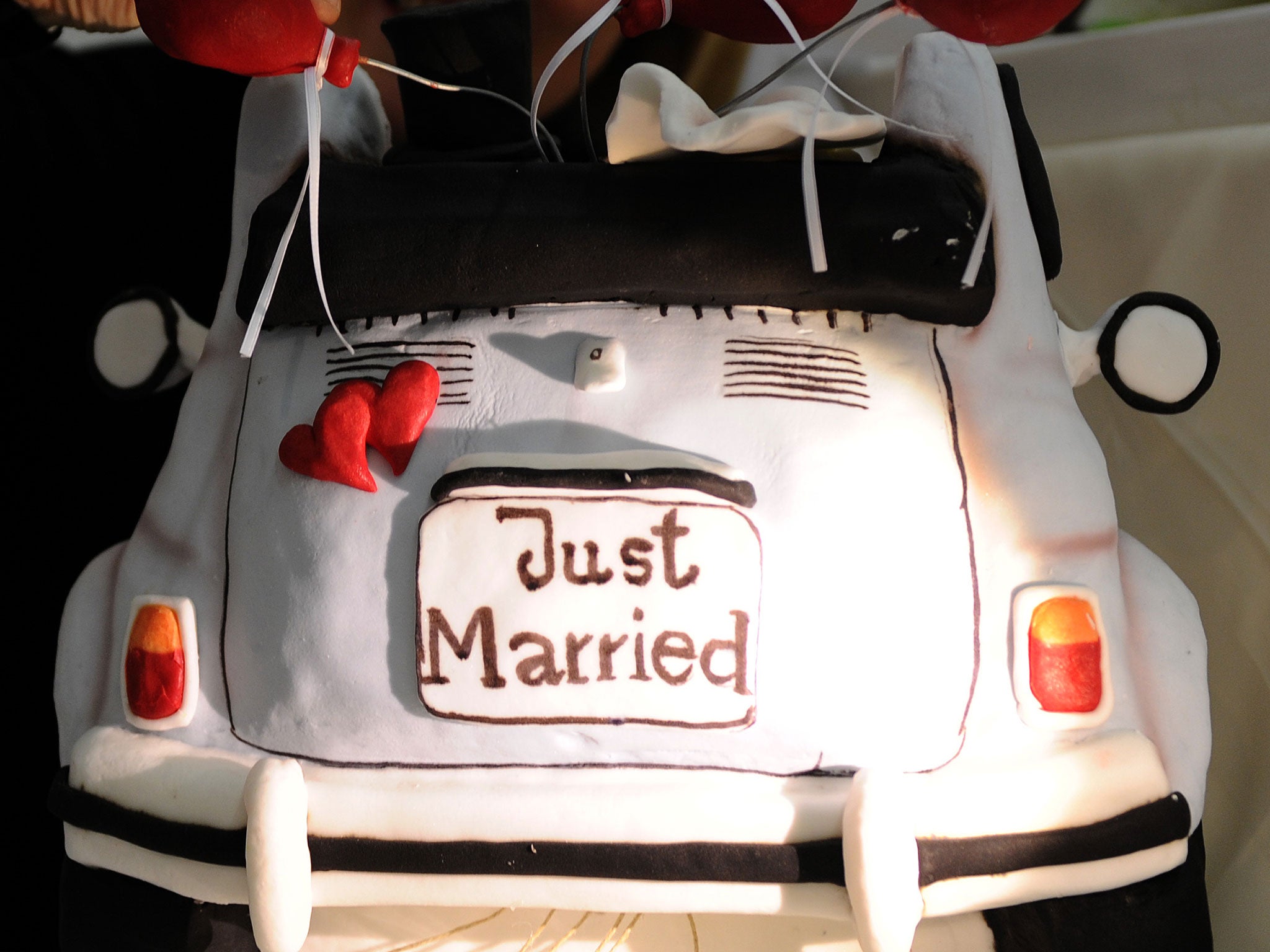I just attended the first stateless digital marriage - but I'm not sure if it can change the world
New marriage contracts mean that we can put our trust in technology rather than government - but that doesn't necessarily make it any better

Your support helps us to tell the story
From reproductive rights to climate change to Big Tech, The Independent is on the ground when the story is developing. Whether it's investigating the financials of Elon Musk's pro-Trump PAC or producing our latest documentary, 'The A Word', which shines a light on the American women fighting for reproductive rights, we know how important it is to parse out the facts from the messaging.
At such a critical moment in US history, we need reporters on the ground. Your donation allows us to keep sending journalists to speak to both sides of the story.
The Independent is trusted by Americans across the entire political spectrum. And unlike many other quality news outlets, we choose not to lock Americans out of our reporting and analysis with paywalls. We believe quality journalism should be available to everyone, paid for by those who can afford it.
Your support makes all the difference.On the tube speeding across London to my friend’s wedding, I considered the wasteful expense of a dozen wedding receptions I’ve attended before – rammed with jetlagged relatives, screaming kids, and an exhausted couple. I pondered the appeal of being married in my pyjamas.
As I arrive at the North London flat, my friend ushered me into her living room where I joined a trio of friends of the bride. We squeezed onto the crowded couch after being welcomed by the couple’s overexcited Rhodesian Ridgeback.
It wasn’t more than a few weeks prior when my friend messaged me on Facebook to say that she was getting married online. The marriage of netizens is an individualised commercial contract, made during an online signing ceremony and recognised worldwide. It sounds like a futuristic impossibility – but it’s happening right now.
Waiting for the digital wedding to begin, we drank mimosas out of tumblers and turned our attention to two laptop screens placed side-by-side on a table, prominently facing the couch.
The couple addressed the many friends, family, and even strangers who had tuned into the Google Hangouts livestream. My friend began explaining how she has family in different places across the world and feels “like a migrant”. She said she wants a marriage that’s independent of the state.
The groom asked online attendees to post images of themselves wherever they are. “Please send us your photos. We want to feel connected with you,” he said. Posted selfies from people thousands of miles away, at work in offices, at construction sites or in their houses began lighting up the screen: the wedding guests.
At the critical moment of signing the marriage contract, the groom announced technical difficulties. The ceremony paused as he refreshed the page and the bride petted the whining dog. Everyone held their breath for the mere seconds it took for the digital signature to process, then – voila - the page reloaded and the 5-minute signing ceremony was complete.
My friends’ marriage heralds a new era where couples may pass on the appointment with the council to get a marriage certificate. Digital marriages can be done through the Estonian government and Bitnation, which distribute digital ID cards that allow e-signing such contracts.
This kind of marriage is likely to appeal to libertarian anarchists who see new internet technologies as "hacking the state,” using web-based functions to replace basic functions of government on its path to obsolescence. They believe they are riding the wave of technology towards a fairer future with less governmental supervision and interference.
The e-wedding contract I saw signed is intended to be enforced like a pre-nup under civil law. It is “stateless” because it does not register the couple as married with any government – and couples need solid legal advice when writing their e-wedding contracts to ensure they work in the jurisdiction of their choice if anything does happen in the future.
Technology’s role as society’s nanny strikes me as far from ideal. Take Bitcoin for example. At first digital currency Bitcoin was touted as making society more egalitarian because central banks couldn’t influence its value, but later bit-mining syndicates grew powerful enough to threaten monopoly. We’d better not hold our breaths waiting for a techno-utopia.
Instead we might hope digital marriages will operate in the neutral, non-culturally-specific space of international law, globalising culture and deterring nationalism. In the long term, they might help reform intolerance as more culturally diverse marriages are seen.
In the future we might see, for example, UK recognition of Islamic Sharia law marriages, humanist marriages, and gender-neutral marriages. Gay marriage contracts could even be e-signed in parts of the UK and its territories where gay marriage is not recognised, like Northern Ireland, according to blockchain lawyer Adam Vaziri.
“Technology changes faster than regulation, and you need just one initiative to be successful to create a domino effect across governments,” Vaziri told me, when I asked him about the effect these digital marriages might have. My friends are happy after their digital wedding day – but will this precedent change the world? We’ll have to wait and see.
Join our commenting forum
Join thought-provoking conversations, follow other Independent readers and see their replies
Comments